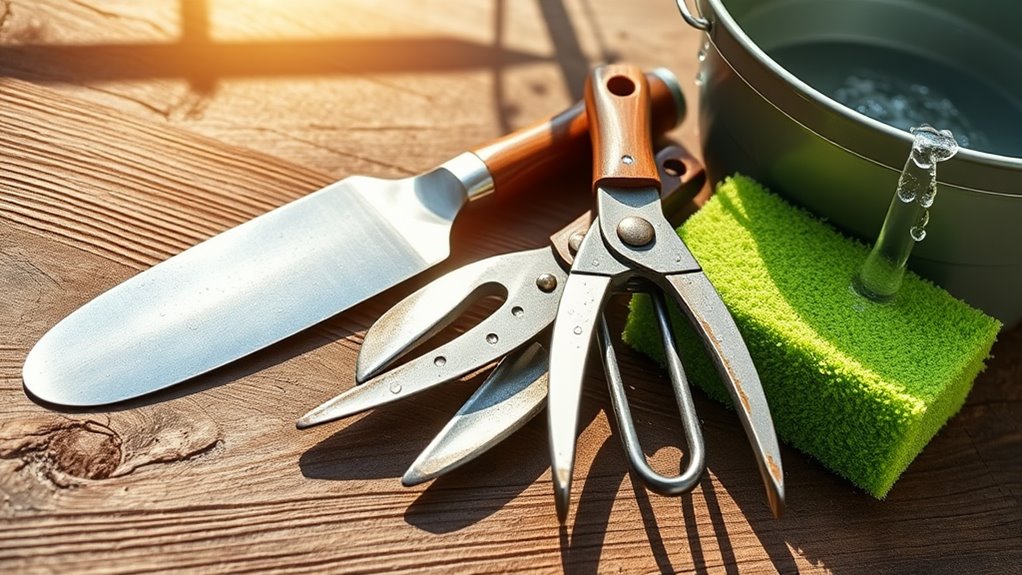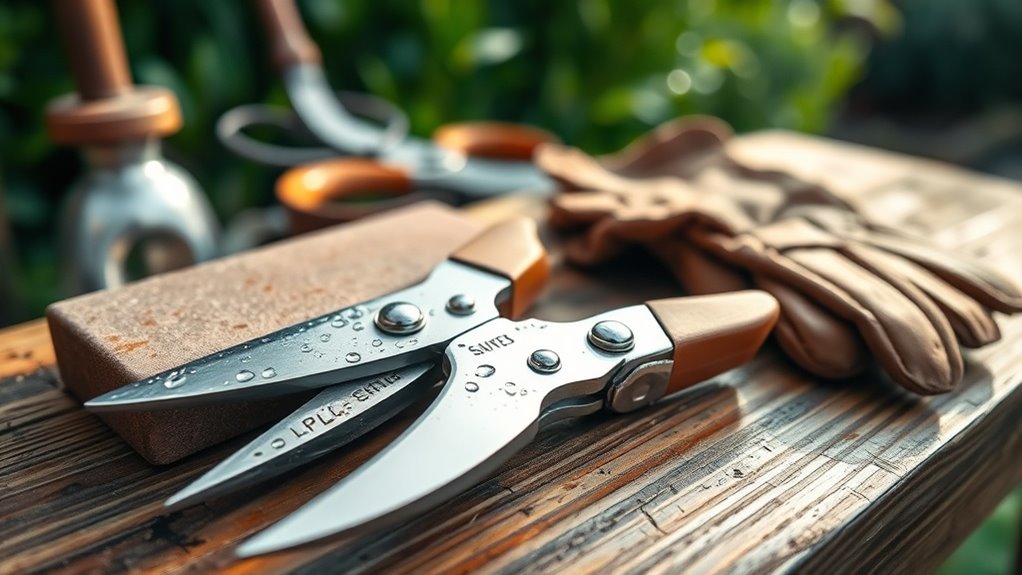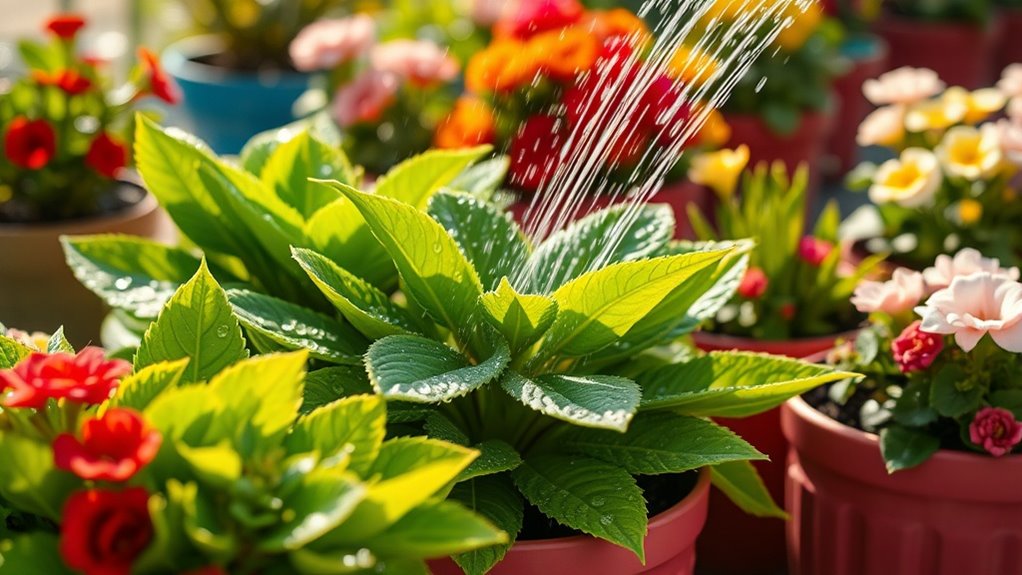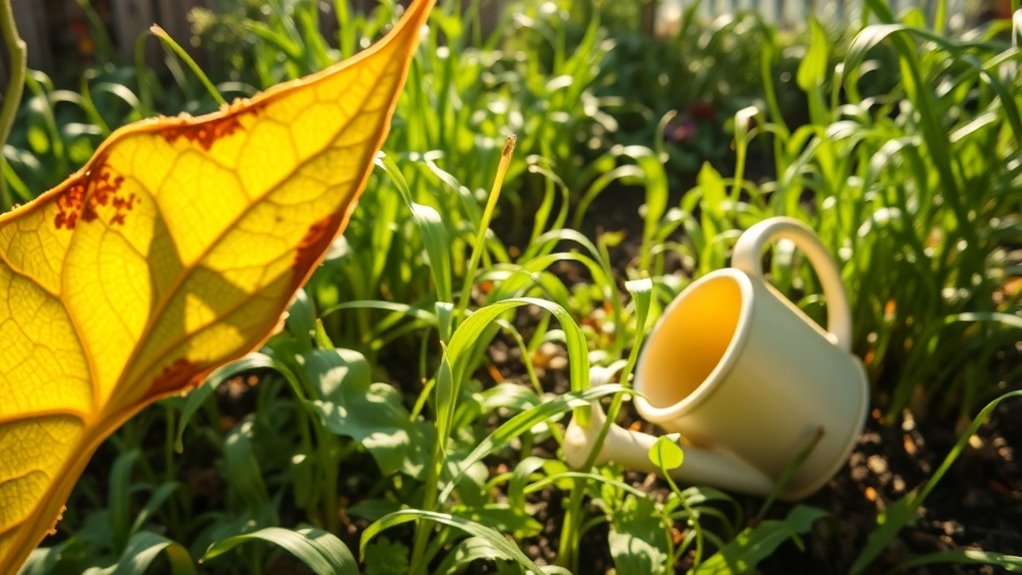4 Tools Every Gardener Should Clean Weekly-and Why
Did you know that improper tool maintenance can reduce your gardening efficiency by up to 30%? Keeping your tools clean isn’t just about aesthetics; it’s crucial for preventing disease and ensuring optimal performance. Four essential tools require weekly attention, and neglecting them can lead to costly replacements and unhealthy plants. Let’s explore which tools you should prioritize and the specific reasons behind their maintenance.
Key Takeaways
- Pruning Shears: Regular cleaning prevents disease transfer and maintains sharpness for effective cutting. Wipe blades weekly and oil pivot points for smooth operation.
- Trowels: Weekly cleaning removes soil and debris, preventing rust and ensuring efficiency. Inspect and sharpen blades to maintain performance.
- Garden Hoses: Inspect for leaks weekly and rinse after use to remove dirt. Proper storage prevents kinks and ensures effective watering.
- Hand Tools: Regular cleaning extends tool lifespan by removing debris and preventing corrosion. A light coat of oil can enhance metal parts’ durability.
- Benefits of Maintenance: Consistent tool care promotes safer gardening practices, improves performance, and reduces disease risk, ultimately supporting healthier plant growth.
Hand Tools
How often do you take a moment to clean your hand tools? Regular cleaning extends their lifespan and ensures optimal performance. Start by rinsing off dirt with water, then scrub with a stiff brush to remove stubborn debris. For rust, use a mixture of vinegar and baking soda. Don’t forget to dry them thoroughly to prevent corrosion. Apply a light coat of oil to metal parts for protection. Finally, store your tools in a dry place. These tool cleaning tips not only keep your hand tools in top shape but also contribute to safer, more efficient gardening. Regular maintenance is essential for tool longevity and can help prevent issues that may arise during gardening.
Pruning Shears
Pruning shears are essential tools for maintaining the health and aesthetics of your garden. Regular cleaning prevents sap and debris buildup, ensuring sharp, efficient cuts. Clean blades reduce the risk of disease transfer between plants, while lubricating moving parts enhances performance. Additionally, cleaning and sharpening your tools regularly can significantly improve their lifespan and functionality.
| Cleaning Step | Tools Needed | Frequency |
|---|---|---|
| Wipe blades | Cloth or sponge | Weekly |
| Sharpen blades | Sharpening stone | Monthly |
| Oil pivot point | Lightweight oil | Weekly |
With proper care, your pruning shears will stay functional, supporting healthy plant growth and beautiful landscaping.
Garden Hose
A garden hose is a vital tool for delivering water to your plants, ensuring they receive the hydration necessary for growth and vitality. To keep your hose in optimal condition, inspect it weekly for cracks or leaks, which can waste water and reduce pressure. Rinse the hose after each use to remove dirt and debris, preventing clogs in the nozzle. Store it properly, avoiding kinks that can damage the material. Regular cleaning helps prevent algae buildup, ensuring your hose remains safe for your plants. Additionally, maintaining your hose contributes to an ideal watering schedule, promoting healthy and thriving gardens.
Trowel
The trowel is an essential tool in any gardener’s arsenal, perfect for digging, planting, and transferring soil.
To maintain its efficiency, clean your trowel weekly. After each use, remove soil and debris with a stiff brush or cloth. If necessary, soak it in warm soapy water to loosen stubborn dirt, then rinse thoroughly. Dry it immediately to prevent rust. You can also clean rusty tools using a simple pantry staple for added maintenance.
Inspect the blade for nicks or damage; sharpen it as needed.
A clean trowel not only ensures optimal performance but also prevents the spread of diseases between plants. Keeping your trowel in top condition will enhance your gardening experience.





